|
Dear Tony Richard Hunn (1949-2006) was both my academic and spiritual teacher. He taught me how read, write and interpret traditional Chinese ideograms. I trained with him between 1989-2006. He was an English gentleman who could read, write and speak many dialects of the Chinese language - including the rare Hakka dialect spoken by our Chinese grandmother (whom Richard met in 2000 during a visit to our house). I wrote this for Richard following his passing: He helped me understand and balance the two sides to my character - the 'Chinese' and the 'British'. He used to work for Pebble Mill (BBC) - but was an academic expert on the Chinese language and Chinese Buddhism. His spiritual teacher was Charles Luk (1898-1978) - who in-turn trained under the Great Chinese Ch'an Master Xu Yun (1840-1959). To me, Richard Hunn represented everything that is great and good about the UK. In 1991, Richard Hunn gave-up his life in the UK and migrated (via a modest academic study grant) to Kyoto in Japan. He lived there between 1991-2006 (marrying a Japanese woman - Taeko - with whom I am still in communication with today). Why did he choose Japan? Well, he received an academic grant to study the transmission of Chinese Ch'an from China to Japan - which included examining the Chinese Ch'an Temples that still exist in Japan - separate and distinct from the Japanese 'Zen' Temples. Every August-September each year, Richard Hunn (who worked at Kyoto University) used to escort a number of his English Study students (usually 20 or so) to look around London. The students would stay for about two-weeks before returning as a group to Japan without Richard. Being 'free' of this responsibility, Richard would visit all his family - before spending a week or two at our house in Sutton (Priory Road - where you showed me an excellent Tensho Kata in the hall). We would meditate together and discuss reality deep into the night. He used to test my understanding of Chinese ideograms - crushing my stupidity and encouraging my insight. Even so, I was reticent to actually 'translate' anything - until a number of Mainland Chinese students studying in the UK checked my work - and encouraged me to start translating. I was then put in contact with a number of academics in China and my life entered a new phase. Richard Hunn visited a number of old martial arts 'Dojo' positioned in and around the remote Kyoto hills. He was often 'Introduced' with a letter to various Old Masters who lived in rustic huts - usually with only one or two disciples. Many practiced Chinese arts unaltered in anyway for hundreds of years. These Japanese men and women also studied traditional Chinese ideograms - the original language of the arts they preserved. As these arts existed 'outside' the grading (coloured-belt) system of Japan - they were excluded from all State financial support - hence their simplistic existence. Best Wishes Adrian
0 Comments
Dear B As far as I am aware, Master Xu Yun had studied the Yijing as a child (and youth) under the strict supervision of the numerous tutors that his (Scholar-Official) father traversed through the household. This was in preparation for Xu Yun to take the 'Scholar-Official' Government Examination - which required the rote learning of the Four Books and the Five Classics - and the meticulous replication (word for word) of required sections of each text. A good Scholar-Official must demonstrate how he would deal with each real-world incident by referring to a precise and exact extract of whichever divine-text was relevant to the situation. There could be NO deviation from this ancient (and 'perfect') process if a candidate was to be successful. Remember, tens of thousands applied - and only the low-hundreds would be 'Passed' - according to governmental needs (which meant thousands who had 'Passed' would be 'Failed' as no posts existed for them to be allocated toward). On paper (and in public), Master Xu Yun always distanced himself from Confucian and Daoist Texts (the Yijing in China is considered a 'Confucian' Text). This is to be expected from a man who betrayed the will of his father and instead embraced the Path (Dharma) of the Buddha - a religion that even today is considered 'foreign' in China. To be successful on this path - Xu Yun had to completely abandon what appeared to be the worldly path as defined by Chinese convention. Therefore, the (Indian) Vinaya Discipline took the place of the Four Books and the Five Classics. If this was the cae, then why did Xu Yun (privately) advise Charles Luk to study the Yijing and integrate it with the Ch'an Path? In the UK - Richard Hunn (my primary teacher) was considered the most prominent 'Master' of the Yijing - as he could read the original (and ancient) Chinese ideograms and even lectured about this Text to ethnic Chinese students attending University in Great Britain in Putonghua! For our Ch'an (Caodong) Lineage (Master Xu Yun inherited and transmitted all Five Houses of Ch'an - but in his private transmission he only favoured the 'Caodong') - the Yijing is a pivotal and yet 'hidden' Text. Remember, the Caodong Masters were also experts in the study of the Yijing - and they used trigrams and hexagrams to devise the Five Ranks System. Xu Yun was the opinion that it is only through the study of the Yijing that the Caodong methodology can be truly understood. In this regard, John Blofeld was never privy to this advanced knowledge. If he met Xu Yun - it was merely for a few minutes where Blofeld (by his own admission) spouted nonsense. Of Course, I salute your efforts and you must never be afraid (as I know you are not) to pull the whiskers of the tiger! With Metta Adrian
Although eulogised more or less the world over today – Master Xu Yun attracted his fair share of criticism. Although completely indifferent to worldly affairs he was accused of being a ‘rightest’ and a ‘leftist’ at different times in his existence. Those jealous of his spiritual power (and seniority) within the Chinese Buddhist System – accused Master Xu Yun of breaking the very Vinaya Discipline he fervently enforced upon his disciples. Quite often this involved the rules surrounding sexual self-control and celibacy – with Master Xu Yun accused of participating in relations with male acolytes. Of course, there was never any material evidence to substantiate these rumours. At one time a young woman took her clothes-off in front of a meditating Master Xu Yun on a boat packed with witnesses – and he never reacted. It is speculated that this woman was paid to do this in an attempt to secure material evidence regarding Master Xu Yun breaking the Vinaya Discipline.
Part of the reason inspiring these baseless attacks involved the Imperial Japanese presence in China between 1931-1945 – which saw an attempt at manipulating the Chinese Sangha into adopting the Japanese Zen practice of NOT following the Vinaya Discipline and allowing Buddhist ‘monks’ to be married, eat meat and drink alcohol. There were some collaborative elements within a rapidly modernising Chinese culture that viewed Master Xu Yun’s attitude as being old fashioned and behind the times. Master Xu Yun, despite this pressure from without and within Chinese culture, nevertheless, refused to buckle and instead reacted with an ever-greater vigour in calling for the upholding of the Vinaya Discipline! When told what others were negatively saying about him, Master Xu Yun would laugh and brush the insult aside. What others said was viewed by Master Xu Yun as being a product of greed, hatred, and delusion – and the very ignorance that following of the Vinaya Discipline sought to uproot and dissolve into the three-dimensional emptiness of the empty mind-ground. Just as following the Vinaya Discipline represented the pure ‘host’ position – the impure ‘guest’ position represented the dirtiness of the ordinary, mundane world and its machinations. Why follow the latter when the former offered safety, sanctuary, and a relief from human suffering? Pretending to be a ‘monk’ when immersed in the filth of the ‘guest’ position of lay-existence is NOT correctly following the Buddha-Dharma as taught by Master Xu Yun. Master Xu Yun shuffled-off his mortal coil 64-years ago (in 1959) – on October 13th (when the Chinese Lunar Callender is converted into the Western Solar equivalent). He was in his 120th-year and had lived nearly two of the 60-years cycles that define the Chinese Zodiac. Although born in the Year of the Rat – and obviously a survivor – Master Xu Yun had no patience for superstition. Indeed, his biography is strewn with accidents, injuries, and the occasional monastic disciplining (involving corporal punishment). None of this bothered him psychologically (as he was ‘detached’ from his feelings) – even if the experience damaged him physically. The question is - how many Buddhist practitioners today are prepared to be like this? All the Tang and Song Dynasty Ch’an Records pursue exactly the same task of clarifying the ‘host’ and defining the ‘guest’. The realisation of the ‘host’ is preferred – whilst the denying of the ‘guest’ is encouraged. Even so – it is clear that even within Chinese-language sources – the mistaking of one for the other is a continuous hazard. If this is true of Chinese culture – how much more difficult must it be for followers of the Dharma in the West? The Ch’an path may be direct – but this fact does NOT make it ‘easy’. Sometimes it is more convenient for individuals to follow simpler paths – even if these paths are harder – and infinitely less likely to achieve results! Ch’an is NOT like this. As Master Xu Yun aged – his body changed dramatically. This is a reality we all face and are facing – and yet despite these profound shifts in physical existence – it is never viewed within the Ch’an tradition as anything more than changes occurring in the ‘guest’ - as the ‘host’ (which must NEVER be departed from) does NOT change one iota regardless of what happens to the physical body or the environment within which it exists. This definition of reality and priority differs significantly from what mainstream society finds interesting or important. This is the entire purpose of the Buddha-Dharma and why the Ch’an Method exists. Sometimes, Master Xu Yun could NOT stand-up due to his very advanced age. This is why he is photographed sat on a chair. He did unduly NOT care about this situation as the ‘host’ position never varies – whilst the ever-changing ‘guest’ position find its place within the accommodating (and three-dimensional) emptiness. This is the eternal lesson that Master Xu Yun teaches humanity. This is the ‘host-in-host’ (that is the integration of the ‘host’ and the ‘guest’) position which transforms the ‘guest’ so that it is correctly viewed as traversing the surface of the mind - whilst remaining entirely ‘empty’ from start to finish! Richard Hunn (Wen Shu) was NOT keen on any notion of ‘Transmitting’ the Ch’an Dharma. This coincided with his attitude of NOT wanting to be associated with any particular University, Publisher or Dharma Group, etc. I agree with this approach. Dogma, idealism and superstition has nothing to do with genuine Chinese Ch’an Buddhist practice. What an individual does with their mind (and body) regarding attitudes and opinions held concerning life, politics, culture or everyday activities – has absolutely NO interest for the genuine Chinese Ch’an Master! This attitude is encountered time and again throughout the Tang, Song, Yuan, Ming and Qing Dynasties Ch’an writings of Imperial China – with Master Xu Yun (1840-1959) carrying-on this attitude into the post-1911 era of ‘modern’ China! Obviously, I have NOTHING to transmit. Teaching is simply taking the conditions that already exist – and turning the awareness of the enquirer back toward the ‘empty mind ground’ from which all perception arises (and ‘returns’ according to the Chinese Ch’an tradition) - this is a ‘transmission’ in a general sense – but such an interaction cannot be interpreted as an individual in the West being granted ‘Transmission’. Within Chinese culture, such ‘Transmission’ was Confucian in origin and often travelled within birth families and specific name clans – very seldom (if ever) was a ‘Transmission’ initiated ‘outside’ the family (as ‘outsiders’ could not be trusted to use the family secrets of spirituality, science and martial arts properly). Later, when the ‘Transmissions’ of (related) ‘Father to Son’ was adjusted to accommodate (non-related) ‘Masters to Disciples’ - outside ‘Transmissions’ (separate from the Confucian birth-process) was developed. This is the agency of continuation from generation to generation preserved within the Chinese Ch’an tradition. Birth-relationship is replaced with a ‘strict’ attitude of ‘respect’ and the maintaining of ‘good’, ‘correct’ and ‘appropriate’ decorum, behaviour and deportment. Even within ‘modern’ China – this is a difficult interaction to a) perform and b) achieve. The standards for keeping the mind and body permanently ‘clean’ night and day and is often viewed as being far too difficult for the average individual to meet. As ‘Transmission’ is NOT a game and given that ‘Transmission’ within the Chinese Ch’an tradition is NOT the same as ‘Transmission’ within the Japanese Zen tradition – it is obvious that when the Chinese Ch’an tradition ‘flows’ into the West – it is NOT the case that ‘Transmission’ can easily be applied. The empty mind ground must be ‘realised’ (not an easy task) and ‘maintained’ in every situation (an even more unlikely achievement). I have experimented with ‘Transmission’ in the West – but have found that as soon as the event unfolds – an IMMEDIATE ‘dropping away’ of all interactive effort, respect and continuation occurs. This means that the crucial and inherent energy is diminished, sullied and obscured - and the Ch’an lineage loses its clarity, understanding and ability to ‘free’ others. This explains ‘why’ I have eventually WITHDRAWN all so-called ‘Transmissions’ as a means to emphasis the recorded activities of the Chinese Ch’an Masters – written down in China and translated into English by Charles Luk [Lu Kuan Yu] (1898-1978). Granting Chinese language Dharma-Names and formally ‘Welcoming’ individuals into the ‘Lineage’ - does NOT constitute a ‘Transmission’. As helping others is a key element of the Bodhisattva Vow – I do NOT wish to inadvertently ‘damage’ the Chinese Ch’an tradition entrusted to me – by generating what amounts to a ‘dysfunction’ of transmission.
Dear Taeko I hope you are well! I remember myself and Richard discussing the 'lost' tour of Japan (which took place in the Tokyo 'Budokan') by the masterful British pop group 'The Beatles' - during mid-1966 (June 30th and July 1st)! For reasons unknown, this part of Beatles history renaimed obscure until very recent times. I was born one year later during the Summer of love (May 1967)! I write because recently this tour of Japan has been released again in the UK - and after acquiring a copy - my conversations with Richard came to the fore-front of my mind! There is a an audio CD and a visual DVD all presented in a hand-numbered 'Limited Edition' Box Set. Richard explained to me that he felt the greatness of 'The Beatles' stemmed from a) the mastery they possessed regarding the use of their instruments (like a martial arts 'Master' expertly wielding the 'Weaponry' of the Style), and b) the mastery of the creative aspect of their minds! Together, this interaction created a sublime relationship between the 'surface' mind and the deepest (Empty) aspects of their mind - an interaction which manifested in the physical world through an eternal and Zen-like musical creation that 'transcended' its own mode of existence! All Best Wishes Adrian Reply 1.4.2023 (Email) Taeko Hunn to Adrian Chan-Wyles
Dear Adrian Thank you for your message. The music and popularity of the Beatles hasn’t been changed. It is fun to know that you and Richard had the conversation about the Beatles that you described. He too loved the music of the Beatles. I remember him playing Beatles numbers on the piano from time to time.😊 Thank you for always remembering to write to me. Please take care of your health. Best wishes Taeko (和谷多恵子) PS: It is a beautiful season in Kyoto right now - with the cherry blossoms in full bloom... Attached is a photograph taken at sunset at Shinnyo-dō (真如堂) - Richard's favourite temple. Dear T
Thank you for your interesting email and much appreciated kind words. If you can see the essence of each letter - then we have no business together. Master Xu Yun (1840-1959) exuded this understanding every moment - just in case. The 'hua tou' (word head) is the method whereby the 'essence' (or 'beginning') of each word-letter is clearly perceived as forming, emerging and presenting from within the empty mind ground. As the enquiry requires a certain investigative power - usually this is provided by the question 'Who?' - deployed in any manner that suits the individual. Master Xu Yun used the hua tou 'Who is dragging this corpse around?' Another effective hua tou is 'Who is hearing?' - the latter arising from the instruction contained within the Surangama Sutra (translated by my grand-teacher - Charles Luk). Hearing in this context is not only everything that is heard with the ears - but all sensual stimulation - as all sensory stimulation arises (and returns) to the empty mind ground. Silent Illumination is nothing more than the empty mind ground - when it is fully realised, stabilised and the mind is fully extended. The hua tou 'stills' the mind (so that 'emptiness' within the head-mind is realised) - then, with further training - this realisation of 'emptiness' expands to penetrate the entire body and the environment. This is the extension of this realised 'emptness' throughout the interaction of the six-senses and the six-sense objects (that comprise the physical environment). The three stages of Ch'an training within the Caodong School are: 1) Surface-mind movement - delusion and confusion (guest). 2) Realised 'stillness' and 'emptiness' of mind (host). 3) Expanded awareness - whereby 'stillness' and 'emptiness' expand to incorporate the 'form' (material world) and 'void' (underlying empty mind ground). (Host-in-Host). These three basic levels of attainment can be further subdivided into five, eight, ten or even more stages - depending upon tradition. Another way of interpreting these three stages is: a) Delusion (the normal everyday mind). b) Relative enlightenment ('still' mind) a sense of 'peace' limited to the individual mind - Hinayana. c) Complete enlightenment (fully 'expanded' and permanently purified mind and senses) - Mahayana. None of this should be of too much concern for you. If the words and letters are not returned to the empty mind ground - then we can exchange words all day long - and nothing much will happen. Recently, I was given a 'dust whisk' - imagine that! Utter madness - and yet I did not refuse it - even more unbelievable! All Best Wishes Adrian Dear J
Thank you for your interesting email. Richard Hunn spent much of his mature years working upon a full Chinese-English translation of the Yijing whilst working with a British publisher at a time when such an idea was unheard of in the West. The problem was that this publisher wanted to change many aspects of the translation and Richard Hunn disagreed - as these changes would alter the intended meaning of the translation. Due to these creatiive difference - the Publisher eventually pulled the plug and the project was shelved (in the late 1980s). Nowadays, translations like this are fairly common in the West (many produced by ethnic Chinese scholars) - so perhaps Richard Hunn was ahead of his time! As well as studying the available Richard Wilhelm translation (in its various guises) - Richard Hunn thought highly of the concise (English) translation generated by John Blofeld (not very well-known today). Although Richard Hunn would spend much of his time reading the original Chinese language version of the Yijing presented to him by Charles Luk (1898-1978). John Blofeld translation is only the 64 Hexagrams and the directly related commentary material (together with the 'line' commentaries) excluding the Ten Wings content. This is similar in structure to the various 'Pocket' or 'Concise' editions of Wilhelm (premised upon the 1950 edition translated by Cary F. Baynes from the German into the English language). John Blofeld's rendering of the Yijing, however, is a very different English language translation than that generated by Wilhelm-Baynes (Richard Hunn personally knew John Blofeld - despite Richard being much younger than John). John Blofeld ended his days living in Thailand (I believe with his Asian family). Once a suitable translation of the Yijing is secured - as there are many today - then it is a matter of a) intellectually studying the history and meaning of the text as if it were a typical (narrative) subject similar to academic history or philosophy, etc, and/or b) taking the exactly opposite approach of relating to the Hexagram and related text (including the Ten Wings) - in a direct and existential manner which draws the totality of the 'past' and the 'future' into the 'eternal' present. This replicates today exactly how the original 'Zhouyi' a) developed over time, and b) was used 'directly' by the Diviners of the Zhou Kings! Of course, Chinese language tradition talks of earlier (but similar) divinity manuals existing during the Xia and Shang Dynasty. Best Wishes Adrian Remembering Richard Hunn (1949-2006) - Sixteenth Commemoration of His Passing! (1.10.2022)10/5/2022 At certain times it seems more appropriate to remember particular events - whilst at others it is more in keeping (and more opportune) to just let certain dates and times to quietly go by without making any comment. Ch'an certainly has no interest in the conventions of the world - and Ch'an Masters even less! Bodies come into existence and then pass-away - utilising various time-frames inbetween. Society 'measures' these time-spans for scientific reasons - but all the Ch'an Method is concerned about is that each individual 'realises' the empty mind ground! Remembering the physical existence - and the 'joy' Richard Hunn's presence in the world symbolised - the Ch'an Method insists that we 'remember' to 'look' within so that we can directly perceive the 'empty mind ground' with clarity and without interruption! Richard Hunn lived for fifty-seven years and every one of those years emerged from (and eventually returned to) the empty mind ground. This image above, for instance, is a bridge situated in the remote and surrounding (mountainous) areas outside of the City of Kyoto - the place he lived within from 1991-2006. Richard Hunn was engaged in studying the origins of Chinese Ch'an in Japan - and whilst doing this he visited many and numerous Zen Temples and was introduced to 'old' ethnic Japanese martial arts teachers who lived in seclusion whilst practicing 'Chinese' martial arts systems 'outside' of the official grading system of 'coloured belts' authorised by the Japanese Government (usually possessing only a single disciple whose family possessed the financial means to support this sibling and his or her Master). Such Japanese teachers have to live in a remote and simplistic poverty as a form of 'punishment' - as such individuals are not entitled to the generous financial, material and political support afforded to the so-called 'Japanese' martial arts systems 'preferred' by the Japanese Establishment! The point is that Richard Hunn studied a broad segment of Japanese culture - making his living teaching the English language and English literature at Kyoto University. He travelled widely throughout Japan - lived in an old Samurai Cottage - and made effective attempts to see 'through' the preferences and bias of modern Japanese culture - seeing the Chinese roots of much of Japanese culture that is now denied, ridiculed or even actively negated in Japan! In the material realms of study, science and academia all this data collecting is of vital research importance - but none of it transcends the need for the Ch'an Method and the need to effectively 'look' within! This is why I remember the two sides of Richard Hunn - the academic who traversed the material environment making important notes and observations - and the Ch'an Master who effectively 'looked' within, whilst helping others to do the same!
The publishing business can be a tricky place full of pitfalls for the inexperienced and the unwary – Richard Hunn (1949-2006) was neither of these two things. What he was amounted to being one of the most talented and well-educated Western authorities upon the subject of Chinese languages, Chinese history, Chinese culture and Chinese thought! Indeed, so highly regarded was he in these areas, that even as a young man, Charles Luk (1898-1978) took him as his personal disciple and despite knowing and teaching thousands of others in the world – transmitted the Ch’an Dharma exclusively to him! In 1991, Richard Hunn emigrated to live in Kyoto, Japan, where he taught English Language and English Literature at Kyoto University. He took on this career so that he could dedicate his spare-time to the study of Chinese Ch’an in Japan. In 2002, whilst sat in the living room of my house in Sutton, South London, Richard Hunn became very upset and started to convey to me the story of how he had spent many years carefully translating a number of Ch’an Enlightenment Poems – most of which were completed, checked and endorsed by Charles Luk himself prior to his passing! As Richard Hunn had held Ch’an Week Retreats as a Guest Teacher of the Western Ch’an Fellowship in the Bristol area of the UK- it was suggested to him around 1983, that he forward his finished manuscript containing these poems to Master Sheng-Yen (聖嚴) so that the Taiwanese Head of the Western Ch’an Fellowship could be invited to write and ‘Introduction’. Within Chinese language sources, ‘Sheng-Yen’ is referred to as ‘聖嚴法師’ (Sheng-Yen Fa Shi) or Shang-Yen Dharma Master’ (which implies he is learned with regards to the Buddhist sutras, their contents and their meanings), but is never referred to as ‘聖嚴禅師’ (Sheng-Yen Ch’an Shi) or ‘Sheng-Yen Meditation Master’ - implying that he is acknowledged as specialising in ‘mind to mind’ communication and transmission. Indeed, it is only through his own self-referencing that ‘聖嚴禅師’ is encountered. Richard Hunn wrote a letter in the Chinese language introducing himself and his Ch’an lineage – and enclosed copies of all his translated Ch’an poems – politely enquiring as to whether Master Sheng-Yen thought the poems were of any use – and if so – if he had the time to compile an ‘Introduction’? Richard Hunn did not receive any reply – not even an acknowledgement of receipt. Prior to his passing in 2006, Richard Hunn showed me his decades-old translation work with his scribbles, crossings-out, underlining and highlighting of the original Chinese-language texts of these poems – Charles Luk’s comments written under about two-thirds of the finished translations. This work was completed by Richard Hunn between 1975-1983. As many were posted to Charles Luk who was living in Hong Kong, the dates of these translations are clear for all to see. Richard Hunn was astonished, therefore, to be contacted by a student (in 1985) who said he had come across Richard’s translation work in a book on sale in a British bookshop – but published under the name of one ‘Master Sheng-Yen'! Obviously, I inherited all the papers of Charles Luk and Richard Hunn, and I have in-front of me now, Richard’s original English language translations of a number of poems regarding Ch’an Enlightenment (together with the ‘original’ Chinese texts he translated these poems from) - and they are ‘identical’ word for word – for those poems which appear under Master Sheng-Yen's name! Furthermore, the entire book from its ‘title’ to the calligraphy used on the opening pages all belongs to my teacher – Richard Hunn! Reading these poems is to touch the heart of Richard Hunn as they have absolutely NOTHING to do with the creative talents of Master Sheng-Yen! Indeed, his life has been controversial in many areas – including being a member of the Taiwanese military between 1949-1960.
Chinese Language Reference: https://baike.baidu.com/item/释圣严/1956534 When deploying the Ch'an Method in the West - it is often the case the the recipient does comprehend even the most basic requirements of Ch'an! This is despite shaving their heads, wearing robes and hiding behind foreign names... They think this dualistic attitude is Ch'an and the legitimate Ch'an Method is nothing but a dualistic attitude! Such people defend their ego and want their teachers to defend their egos also. Anyone who displays genuine Ch'an, however, is treated by these people as 'errors' and individuals who possess no 'wisdom' or 'liberating ability!' This if the False Ch'an that is popular, well funded, and very popular. By comparison, genuine Ch'an works from the shadows and influences existence without seeking recognition or even being understood that it is present! Void is forever present, but False Ch'an resides strictly within the realm of 'Form' to which it is attached. Genuine Ch'an is effective because it underlies all phenomena without discrimination. Even False Ch'an arises from the empty mind ground but its practitioners do not want to know this or realise it for themselves, and remain stuck within the world of material attachment. With such profound stupidity - there is not even enough stable area to administer thirty blows with a stick!
|
Archives
March 2024
Categories
All
|
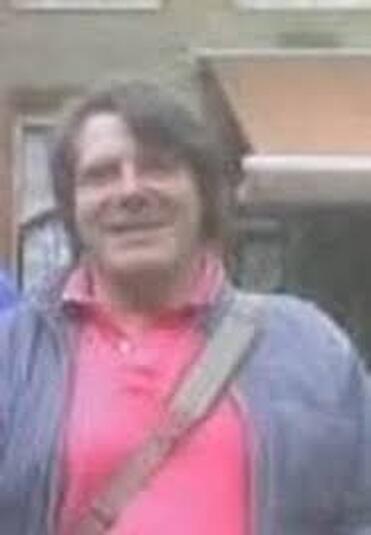
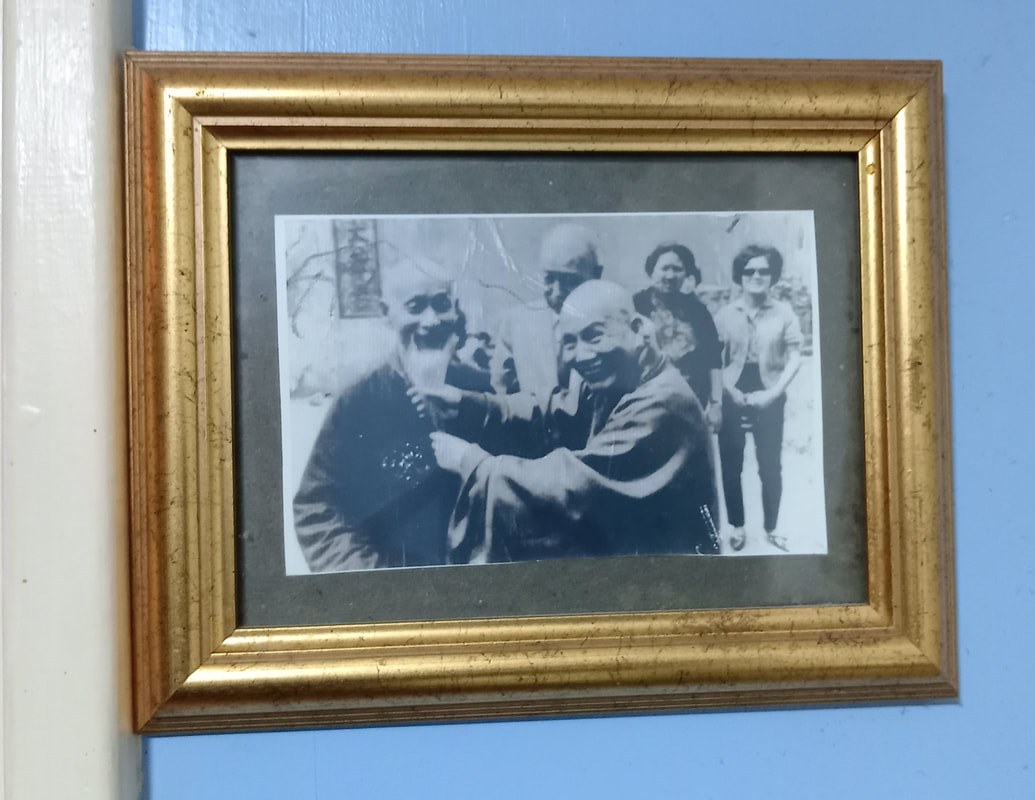
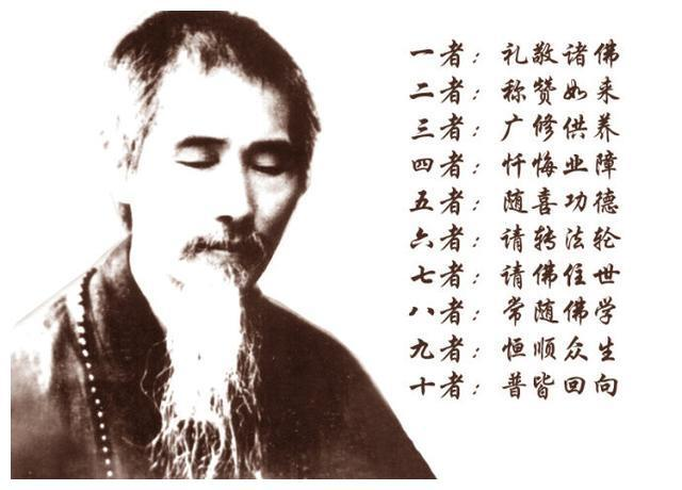
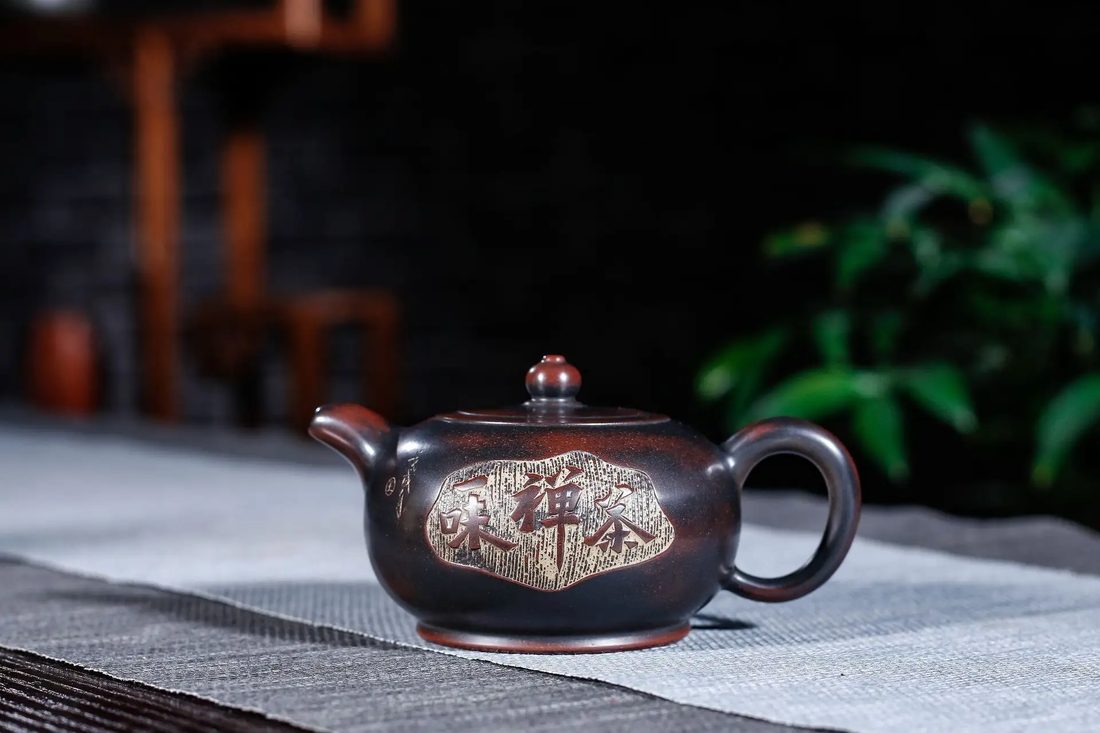
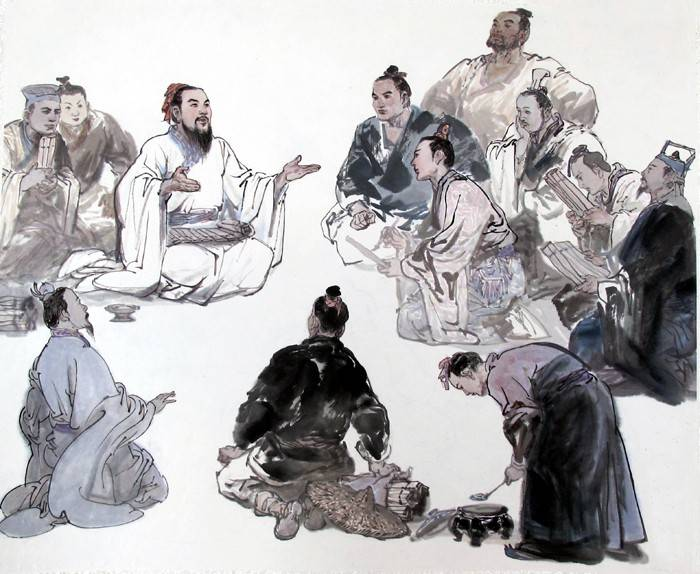
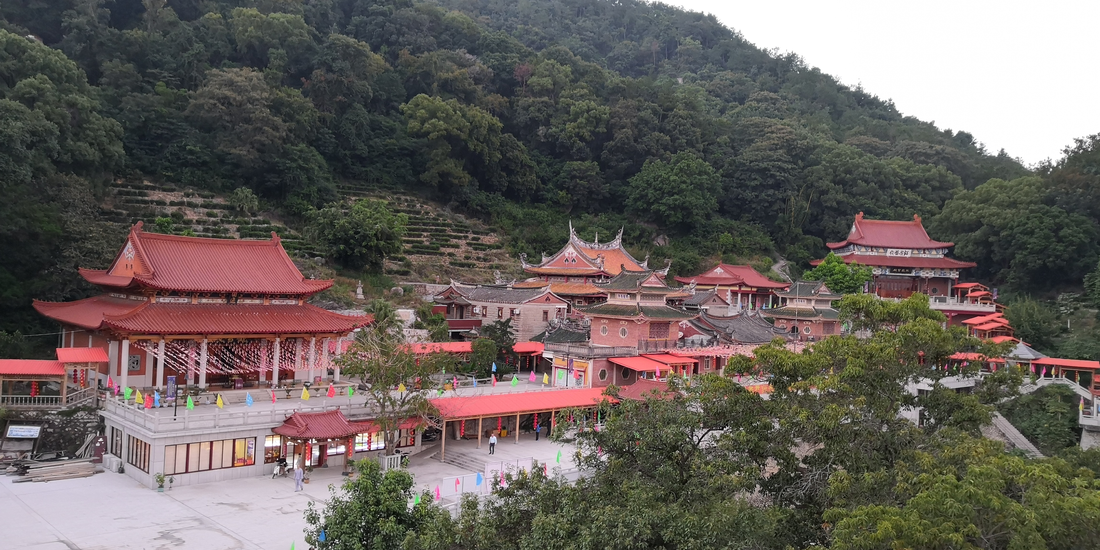
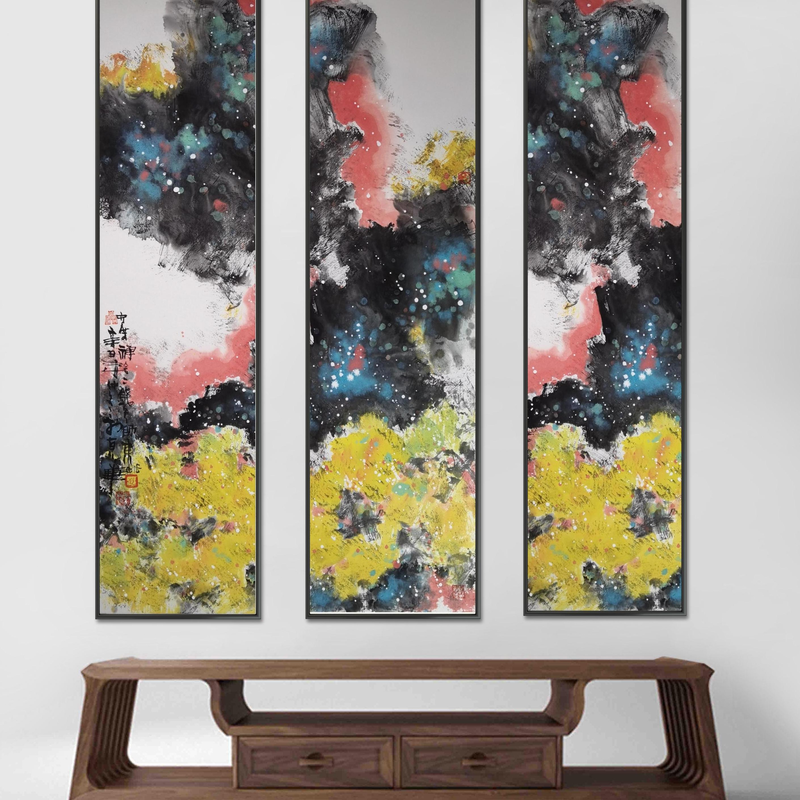
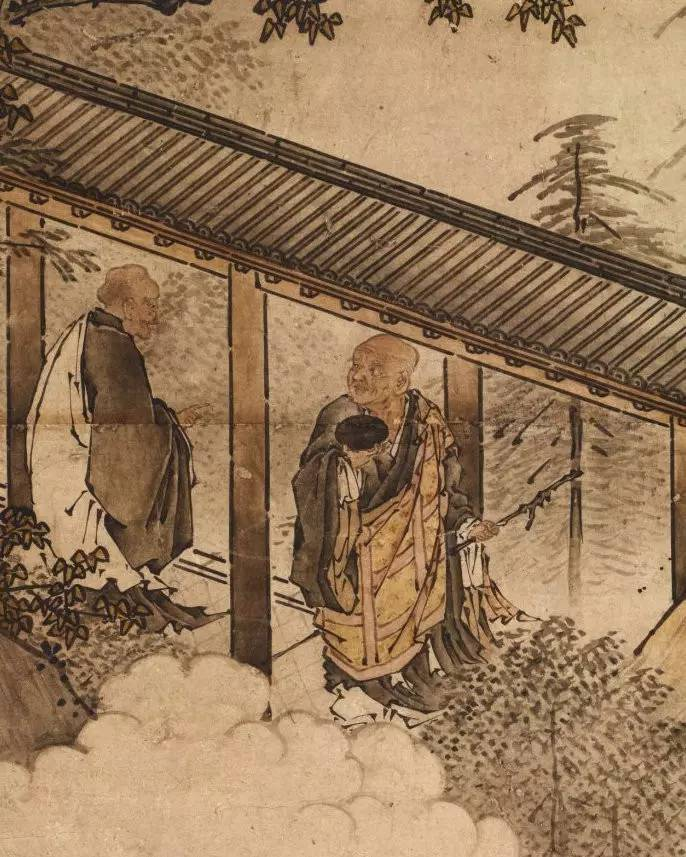
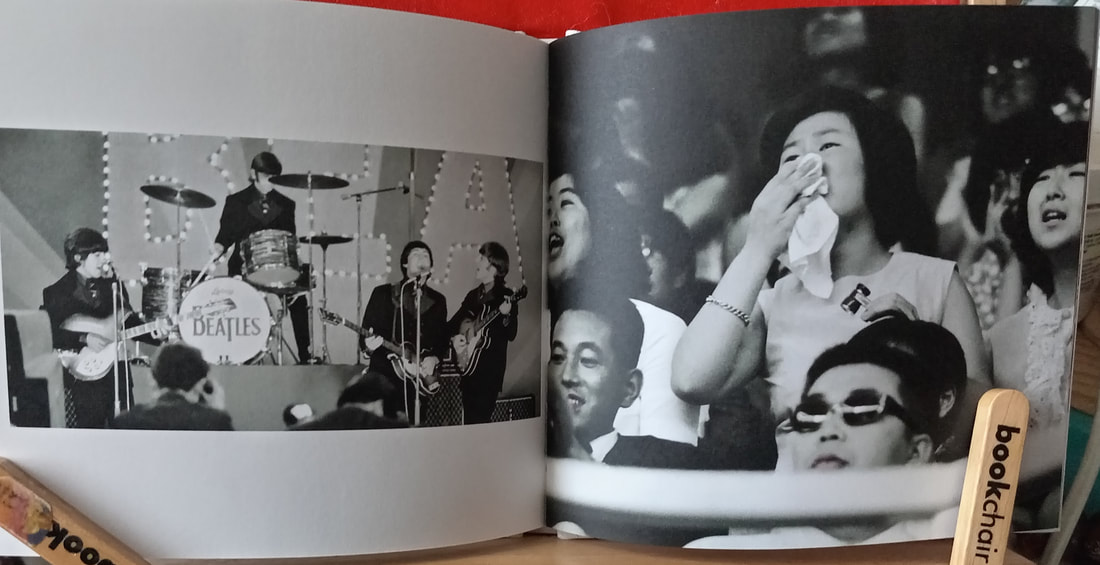
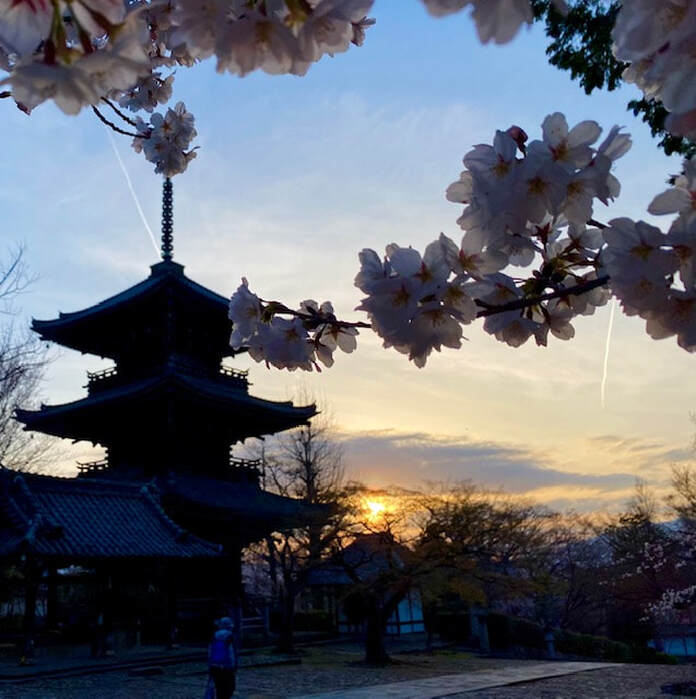
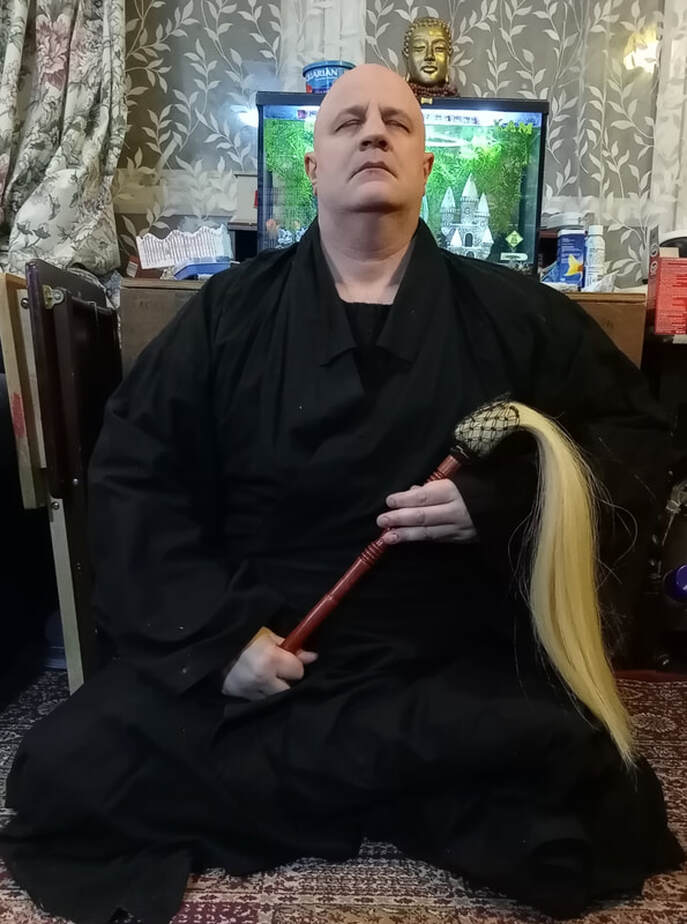
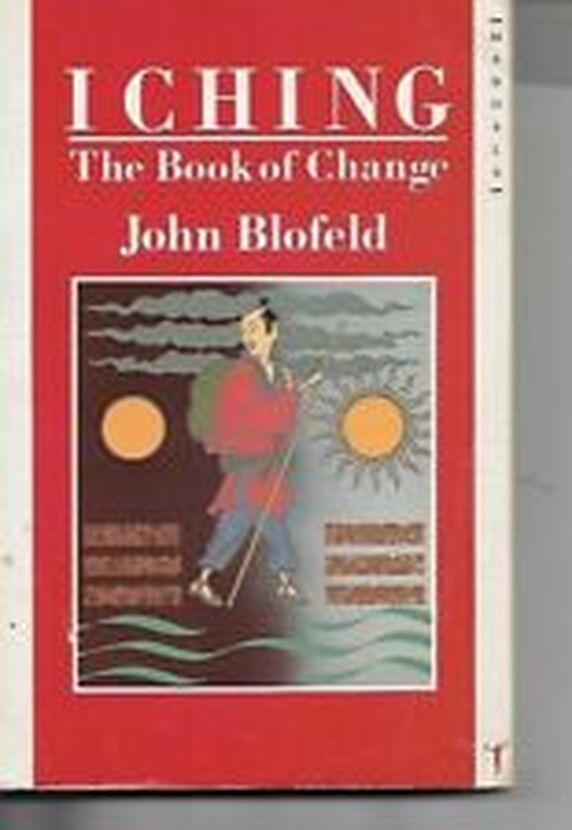
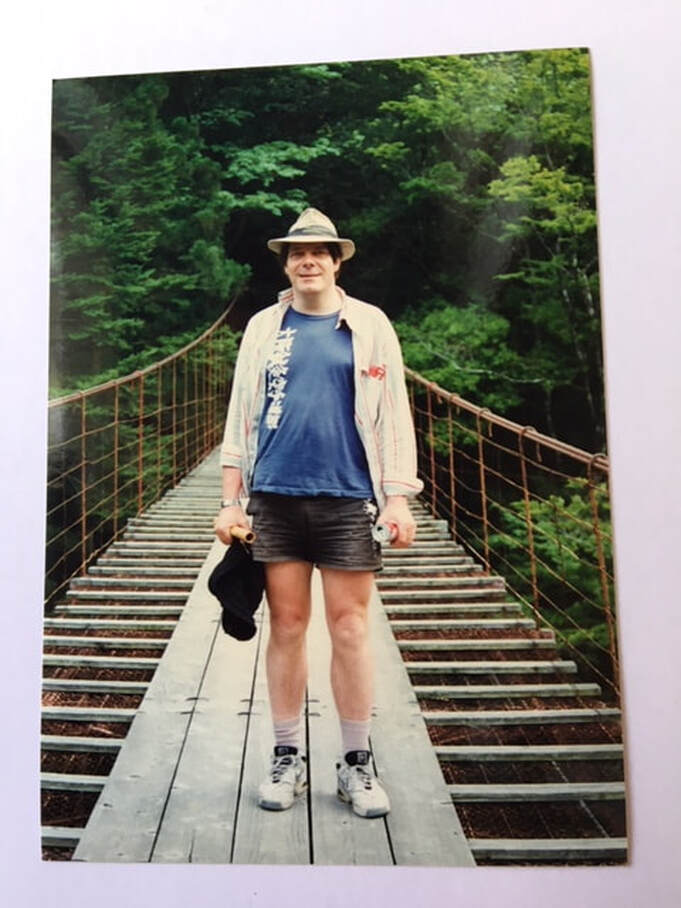
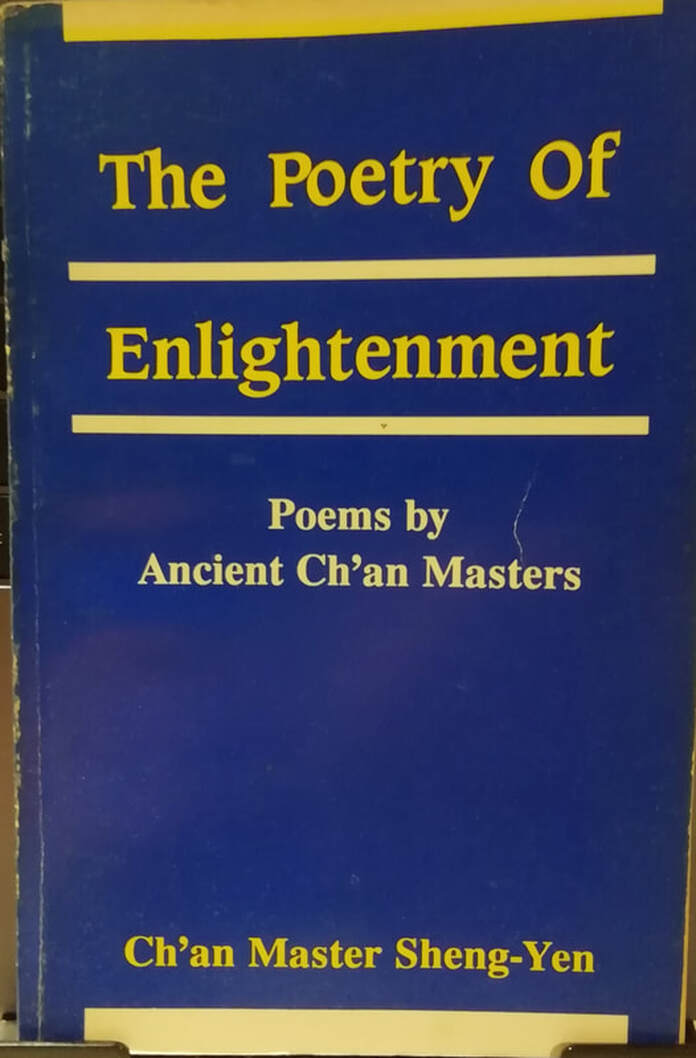
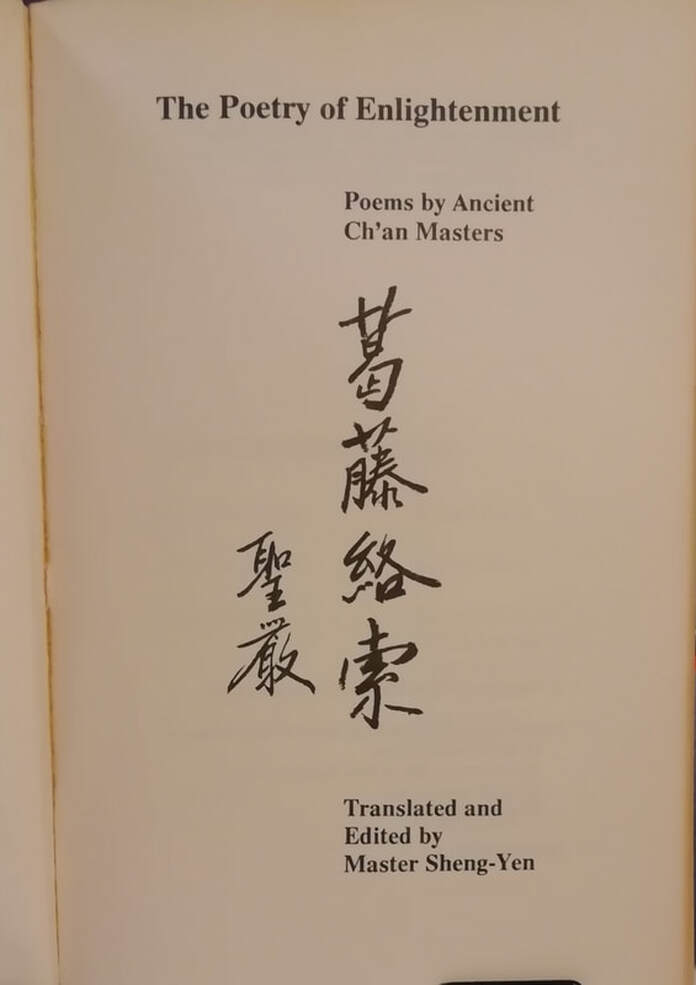
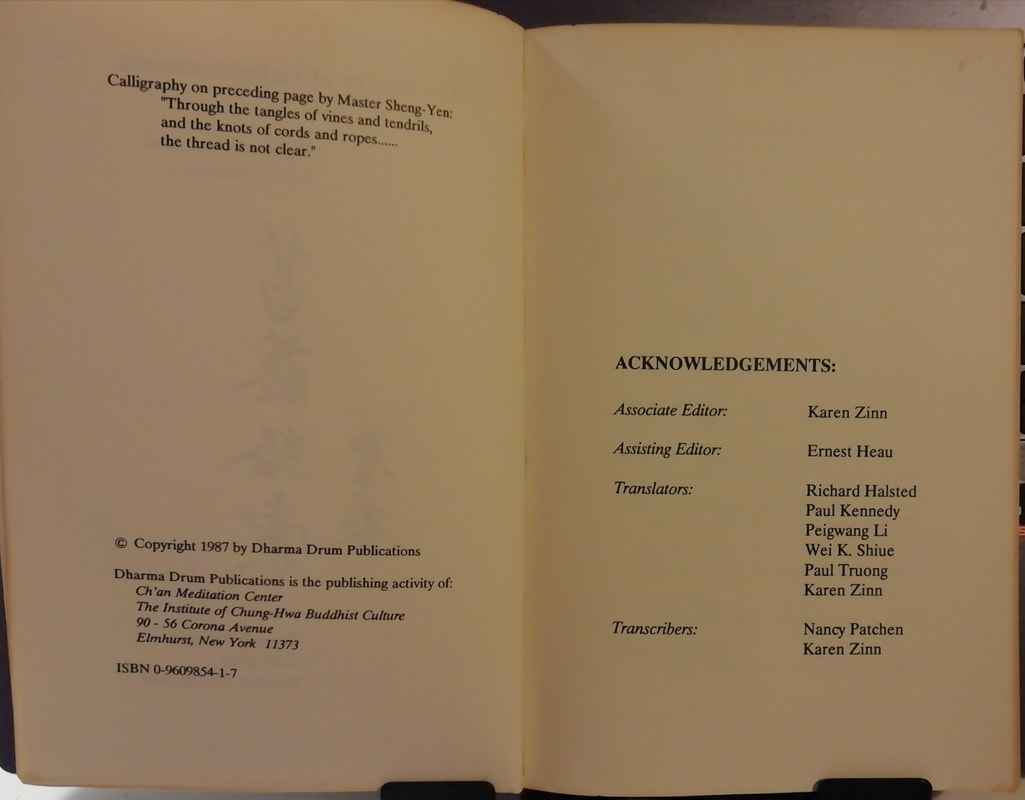
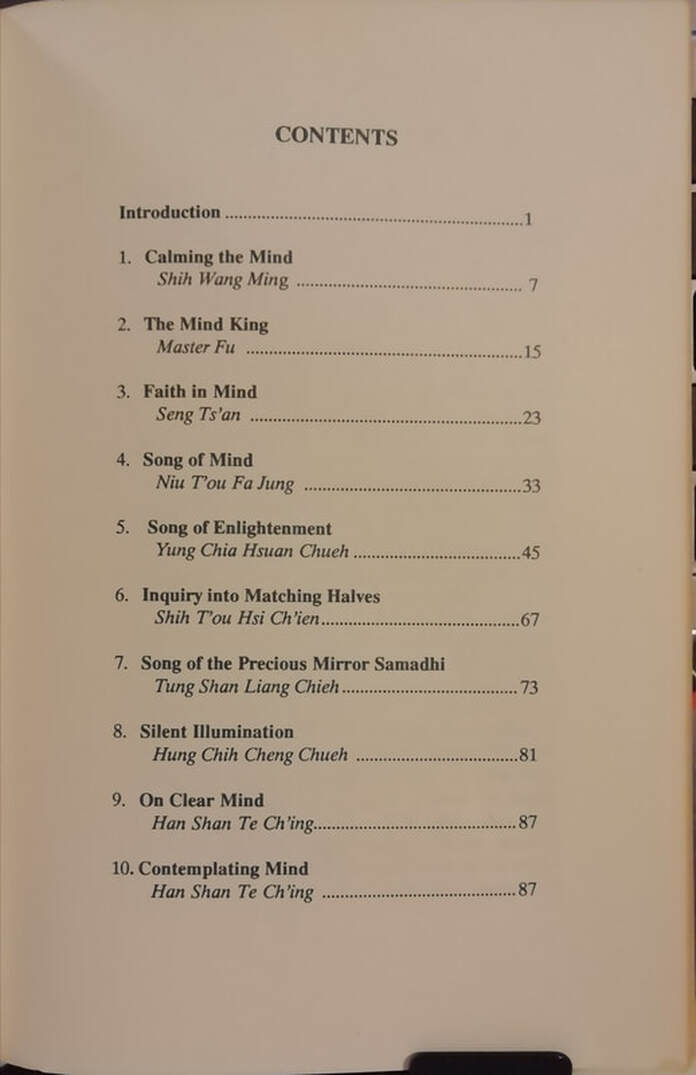
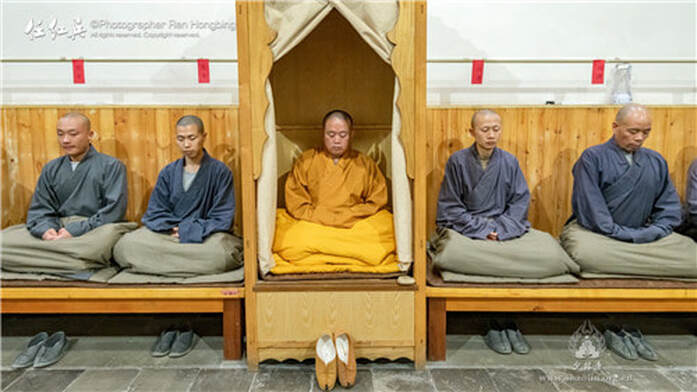
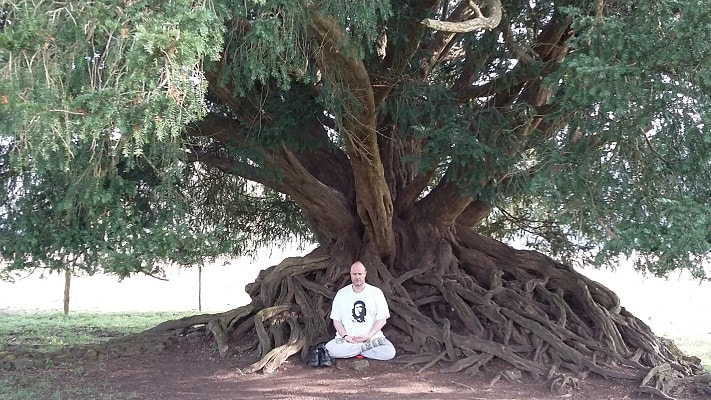
 RSS Feed
RSS Feed